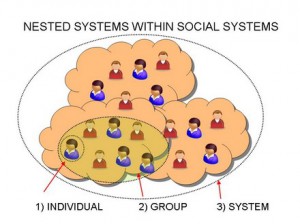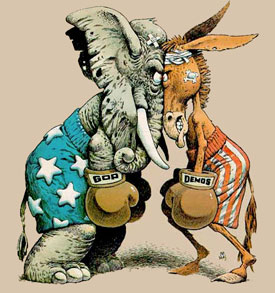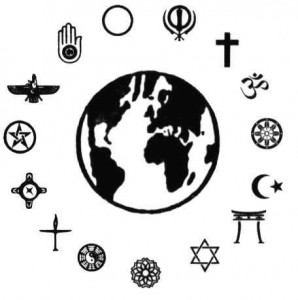 Like many others, I am caught up in the events as they continue to unfold in Egypt. Watching the video this morning of the jubilant crowds after Mubarak announced that he was stepping down brought tears to my eyes. Sharing that joy, I still understand that it is an unfinished narrative of a possible transition from patriarchy to partnership, from autocratic rule by a privileged oligarchy of civilian strongmen and military generals to a more egalitarian parliamentary system. Like any compelling story where life and death are at stake and the outcome is in doubt, I continue to be on the edge of my seat.
Like many others, I am caught up in the events as they continue to unfold in Egypt. Watching the video this morning of the jubilant crowds after Mubarak announced that he was stepping down brought tears to my eyes. Sharing that joy, I still understand that it is an unfinished narrative of a possible transition from patriarchy to partnership, from autocratic rule by a privileged oligarchy of civilian strongmen and military generals to a more egalitarian parliamentary system. Like any compelling story where life and death are at stake and the outcome is in doubt, I continue to be on the edge of my seat.
But stepping back and looking at the big picture over the centuries of the odyssey (three steps forward and two steps back) of human development, what I see is a trend away from the concept of privilege. That is, moving beyond the practice of granting some people more respect, higher status, and power over others based on their gender, race, sexual orientation, age, family, or position within some sort of a hierarchy. And moving instead to a circle of equals where power is not seized but granted by others and is exercised to facilitate rather than to control.
Continue reading →
Category Archives: Transcendence
It’s the System!
 I got feedback from Blanche, my partner Sally’s mom, that the term “patriarchy” does not really resonate with her in terms of describing that model of society and its institutions that I keep referring to in many of my blog pieces. It was interesting that Blanche focused in on that term and made the point to share her thoughts with me. I have been wrestling with the term myself versus various other descriptive words for the same concept (like “hierarchy”, “us and them”, “pecking order” or “pyramid of control”). These to contrast this organizational model with the more egalitarian “circle of equals” (a good descriptive term that I’m more happy with using), which I believe to be the model our human society is evolving into.
I got feedback from Blanche, my partner Sally’s mom, that the term “patriarchy” does not really resonate with her in terms of describing that model of society and its institutions that I keep referring to in many of my blog pieces. It was interesting that Blanche focused in on that term and made the point to share her thoughts with me. I have been wrestling with the term myself versus various other descriptive words for the same concept (like “hierarchy”, “us and them”, “pecking order” or “pyramid of control”). These to contrast this organizational model with the more egalitarian “circle of equals” (a good descriptive term that I’m more happy with using), which I believe to be the model our human society is evolving into.
Continue reading →
Moving Beyond “Us and Them” to only “Us”
 In response to the Arizona shootings, congressperson Debbie Wasserman Schultz said on the PBS News Hour Thursday that we’ve got to “stop treating our opponents as enemies”. President Obama eulogizing nine-year-old Christina Taylor Green said, “I want our democracy to be as good as she imagined it. All of us – we should do everything we can to make sure this country lives up to our children’s expectations”. The issue of civility in political and legislative discourse, which I attempted to address in my last two blog pieces, is now front and center in public discussion in the media.
In response to the Arizona shootings, congressperson Debbie Wasserman Schultz said on the PBS News Hour Thursday that we’ve got to “stop treating our opponents as enemies”. President Obama eulogizing nine-year-old Christina Taylor Green said, “I want our democracy to be as good as she imagined it. All of us – we should do everything we can to make sure this country lives up to our children’s expectations”. The issue of civility in political and legislative discourse, which I attempted to address in my last two blog pieces, is now front and center in public discussion in the media.
Continue reading →
Fully Embracing Democracy
 The last five hundred years of Western history have been all about championing the worth, dignity, rights and responsibilities of individual human beings in the context of increasingly egalitarian institutions. Not that it hasn’t been three steps forward and two steps back at times. I just hope that as we settle into this new century, this third millennium of the “common era”, that we try to take a breath, relax, find our balance and our internal compass, and continue to “move the needle” in our egalitarian embrace of “all of us” rather than the millennia of hierarchical “us and them” thinking that we are coming out of.
The last five hundred years of Western history have been all about championing the worth, dignity, rights and responsibilities of individual human beings in the context of increasingly egalitarian institutions. Not that it hasn’t been three steps forward and two steps back at times. I just hope that as we settle into this new century, this third millennium of the “common era”, that we try to take a breath, relax, find our balance and our internal compass, and continue to “move the needle” in our egalitarian embrace of “all of us” rather than the millennia of hierarchical “us and them” thinking that we are coming out of.
Continue reading →
Can a Hierarchical Public Education System Survive?
 In his October 14 piece for the Economic Policy Institute titled “How to fix our schools”, Richard Rothstein quotes President Obama as saying…
In his October 14 piece for the Economic Policy Institute titled “How to fix our schools”, Richard Rothstein quotes President Obama as saying…
I always have to remind people that the biggest ingredient in school performance is the teacher. That’s the biggest ingredient within a school. But the single biggest ingredient is the parent.
I agree teachers and parents are two key players in an educational environment, and I think there is way too much money and focus spent building a huge educational bureaucracy above and beyond this nexus. Also, I think Obama here is guilty of getting caught up in the prevailing hierarchical thinking and leaving out the most important player in this actualization model… the student.
Continue reading →
Human Being 4.0: The Web Edition
 For better or worse, whether in the context of a “global village” or a “brave new world”, the Internet has given many of us a larger presence in the world that may well be redefining what it means to be human. If we have email addresses, contributions to on-line listservs and forums, social networking pages, blogs, websites and other such virtual edifices, our availability to be viewed, reviewed, and connected with is a quantum leap beyond the pre-web days when most of us just had a phone number and a street address. And as we continue to live our lives we have an ever-growing artifact trail accessible to anyone with a browser, much of it perhaps beyond our control and not necessarily what we would choose to share with strangers or maybe even friends and family. This virtual edifice of artifacts, words and pictures of ourselves captured as binary information in electronic data repositories, that continues even past our death.
For better or worse, whether in the context of a “global village” or a “brave new world”, the Internet has given many of us a larger presence in the world that may well be redefining what it means to be human. If we have email addresses, contributions to on-line listservs and forums, social networking pages, blogs, websites and other such virtual edifices, our availability to be viewed, reviewed, and connected with is a quantum leap beyond the pre-web days when most of us just had a phone number and a street address. And as we continue to live our lives we have an ever-growing artifact trail accessible to anyone with a browser, much of it perhaps beyond our control and not necessarily what we would choose to share with strangers or maybe even friends and family. This virtual edifice of artifacts, words and pictures of ourselves captured as binary information in electronic data repositories, that continues even past our death.
Continue reading →
Drive: Self-Direction, Mastery & the Purpose Motive
[youtube]http://www.youtube.com/watch?v=u6XAPnuFjJc&feature=player_embedded[/youtube]Commenting on my blog “Much More and Much Less than a Boss” on Daily KOS, Alpha99 put up a link to a video on YouTube that they thought I would appreciate called “Drive: The surprising truth about what motivates us”, done by Daniel Pink, who writes about business and human motivation, based on his book by the same name. I played it and was practically mesmerized by this visually captivating and provocative piece, done on a white board with markers and a rapid-fire voiceover by Pink. The issues it calls out are a perfect illustration of what I see as the transformative shift going on in our culture from the hierarchical control model to more of an egalitarian circle of equals.
Continue reading →
Embracing a Successful Anarchic Institution
 I recently read a May 7 article in Education Week, “Embracing Wikipedia”, where author and science teacher Matthew Shapiro makes the case for Wikipedia as a research tool, particularly for students (and therefore I guess for any casual life-long learner), competing favorably (at least in Shapiro’s opinion) with the “Gold Standard” Encyclopedia Britannica.
I recently read a May 7 article in Education Week, “Embracing Wikipedia”, where author and science teacher Matthew Shapiro makes the case for Wikipedia as a research tool, particularly for students (and therefore I guess for any casual life-long learner), competing favorably (at least in Shapiro’s opinion) with the “Gold Standard” Encyclopedia Britannica.
Heads up folks… you might even want to sit down! Wikipedia uses an anarchic form of governance. In fact, though it may be a long time until “brick and mortar” institutions adopt it, this portable, adaptable and minimalist governance model, may well be one of the biggest trends of the 21st Century, particularly in cyberspace.
Continue reading →
Thoughts on Many “Religious” Paths
 I believe we are approaching a developmental crossroads in the evolution of our human species, though we might be a little bit stuck and in need of some sort of inspirational push. With all the violent religious (and secular) fundamentalism in the past century, we need to come to a new covenant among more tolerant belief systems and traditions to accept “many paths”, acknowledging that your path through the transcending mysteries is just as appropriate for you as mine is for me. That is, as long as both of those paths follow a few basic principles, like the Golden Rule. Continue reading →
I believe we are approaching a developmental crossroads in the evolution of our human species, though we might be a little bit stuck and in need of some sort of inspirational push. With all the violent religious (and secular) fundamentalism in the past century, we need to come to a new covenant among more tolerant belief systems and traditions to accept “many paths”, acknowledging that your path through the transcending mysteries is just as appropriate for you as mine is for me. That is, as long as both of those paths follow a few basic principles, like the Golden Rule. Continue reading →
Coming of Age at the Laundromat
 In 1971, when I was sixteen years old and still living with my mom and younger brother Peter in Ann Arbor, our old washing machine in the basement broke down and my mom (who could barely pay the regular bills) decided she could not afford to fix or replace it, at least not right away. Who would think this would be the catalyst for me to have a transforming experience.
In 1971, when I was sixteen years old and still living with my mom and younger brother Peter in Ann Arbor, our old washing machine in the basement broke down and my mom (who could barely pay the regular bills) decided she could not afford to fix or replace it, at least not right away. Who would think this would be the catalyst for me to have a transforming experience.
Tears in her eyes, she pulled the wet clothes out of the broken-down and leaking washer and threw them in a plastic laundry basket. Her life was already heavy on her shoulders, a divorced single parent with two teenage kids, suffering from depression, and just barely paying bills on the child-support payment from my dad. Having to take laundry to the Laundromat (until she could somehow magically move the money pots around in her budget to get a new washer) felt like the last straw. Continue reading →